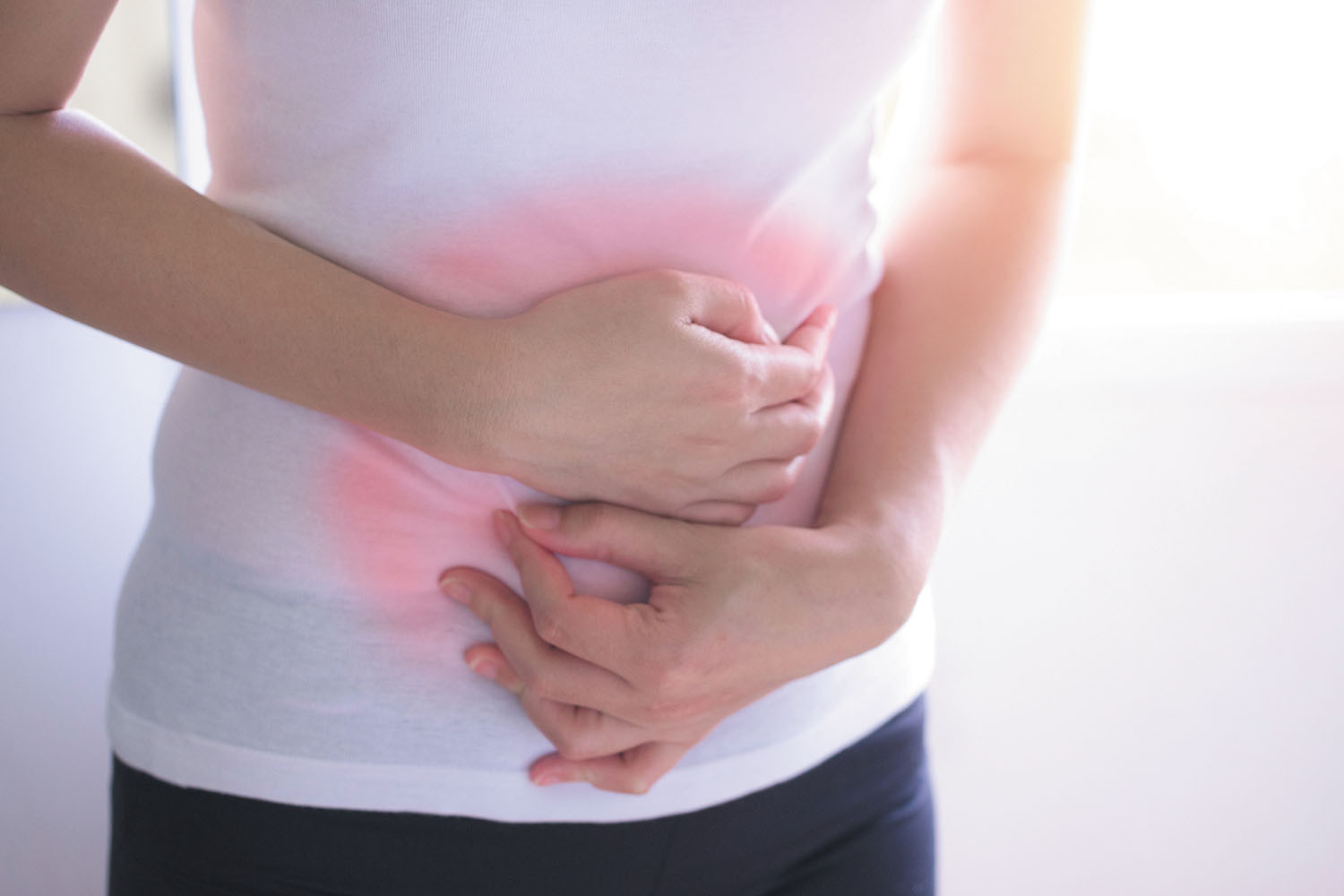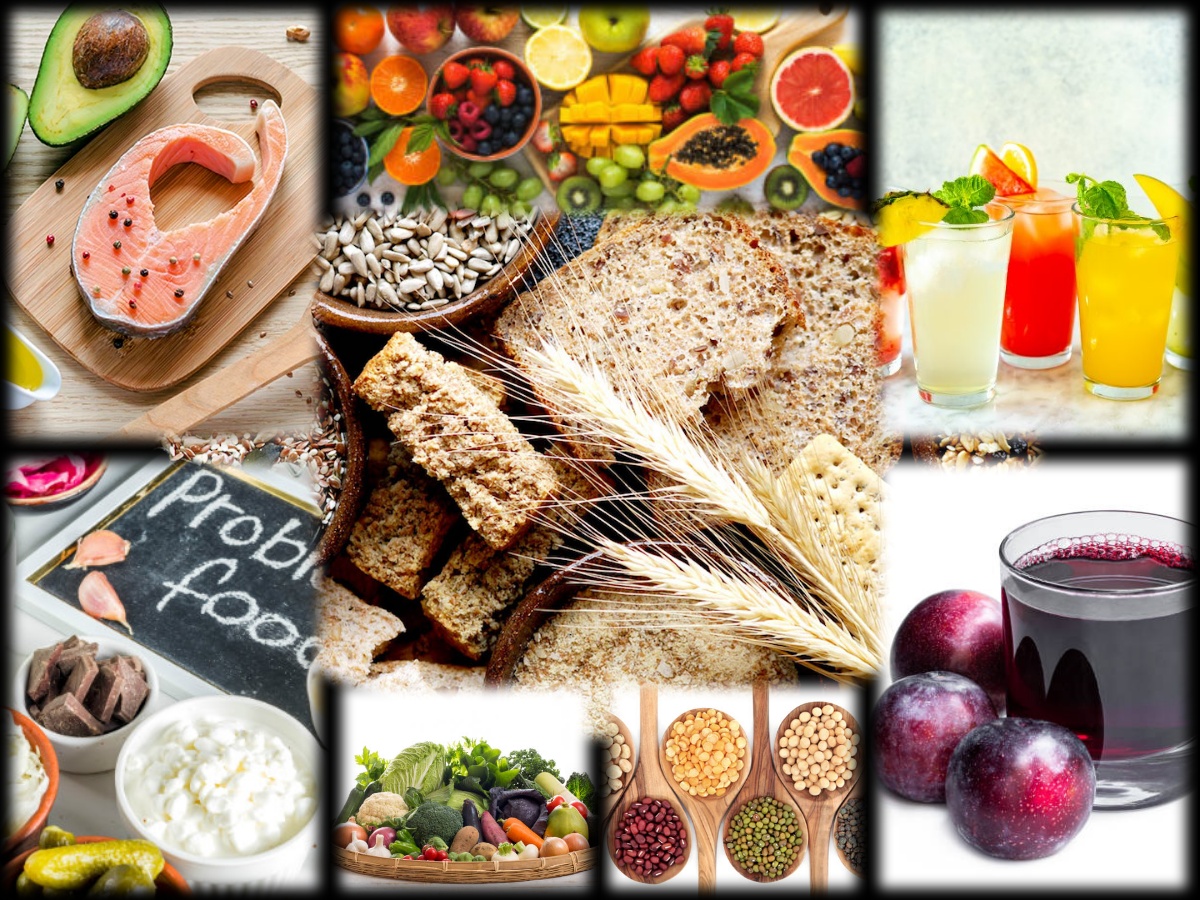Discover essential insights on managing constipation with our comprehensive guide. Learn about causes, effective remedies, dietary tips, and the latest treatments to ease discomfort and improve digestive health. Unlock the secrets to overcoming constipation today.
Table of Contents
Introduction
Constipation is a common condition that affects individuals across all ages, significantly impacting quality of life. Despite its prevalence, myths and misunderstandings about constipation abound. This comprehensive guide aims to uncover everything you need to know about constipation, including its causes, symptoms, and effective management strategies.
Understanding Constipation
Causes of Constipation
Constipation can result from various factors:
- Dietary Choices: A diet low in fiber is a common cause. Fiber helps to bulk up stools and promotes regular bowel movements. Lack of sufficient fruits, vegetables, and whole grains can lead to constipation.
- Hydration: Inadequate water intake can contribute to harder stools that are difficult to pass.
- Physical Activity: A sedentary lifestyle may slow down the digestive process, leading to constipation.
- Medications: Certain medications, including painkillers, antidepressants, and iron supplements, can cause constipation as a side effect.
- Health Conditions: Some health issues like irritable bowel syndrome (IBS), diabetes, and thyroid disorders can predispose individuals to constipation.
- Routine Changes: Alterations in routine, such as travel or changes in daily activities, can affect bowel regularity.
- Ignoring Bowel Urges: Regularly ignoring the urge to go can lead to constipation.
Managing and Preventing Constipation
Effective management and prevention of constipation involve lifestyle and dietary adjustments:
- Increase Fiber Intake: Incorporating more fiber-rich foods like fruits, vegetables, legumes, and whole grains can help soften stools and increase their bulk.
- Stay Hydrated: Drinking plenty of fluids, especially water, helps keep the stool soft and easier to pass.
- Exercise Regularly: Physical activity encourages the movement of food through the digestive system.
- Mind Medications: If you suspect medications are causing constipation, consult with a healthcare provider. There may be alternatives available.
- Respond to Bowel Urges: Go to the bathroom when you feel the urge rather than waiting.
- Routine: Establishing a regular time for bowel movements can help promote consistency.
Symptoms of Constipation
Recognizing the symptoms of constipation is crucial for timely management. Common symptoms include:
- Fewer than three bowel movements per week
- Hard, dry, or lumpy stools
- Straining to have bowel movements
- A sensation of an incomplete evacuation
- A feeling of being blocked or unable to pass stools
When to See a Doctor
While constipation is typically manageable with lifestyle and dietary changes, there are instances when it’s important to consult a healthcare provider. If constipation is accompanied by symptoms like severe abdominal pain, blood in the stools, unexplained weight loss, or if there’s a sudden change in bowel habits, medical advice should be sought. This could indicate a more serious underlying condition requiring professional evaluation and treatment.

The Impact of Diet on Constipation
Foods That Contribute to Constipation
Several types of foods are known to potentially exacerbate constipation, primarily due to their low fiber content or their dehydrating effects:
- Low-Fiber Foods: Diets low in fiber can lead to constipation. This includes foods like meat, dairy, and processed foods, which do not provide the necessary bulk to stools.
- Processed and Refined Grains: White bread, pasta, and other refined grains have had most of their fiber and nutrients removed, which can slow down digestion.
- High-Fat and Fried Foods: These can slow down the digestive process, making it harder for food to move through the colon.
- Dairy Products: For some individuals, especially those who are lactose intolerant, dairy products can cause constipation.
- Alcohol and Caffeinated Beverages: These can lead to dehydration, which can, in turn, make stools harder and more difficult to pass.
Foods That Can Help Alleviate Constipation
Conversely, incorporating certain foods into your diet can help maintain regular bowel movements:
- High-Fiber Foods: Foods high in fiber, such as vegetables, fruits, whole grains, and legumes, add bulk to the stool and help it pass more easily.
- Prunes and Prune Juice: Known for their natural laxative effect due to their high fiber content and the presence of sorbitol.
- Water and Hydrating Liquids: Proper hydration is crucial for softening stools. Drinking plenty of water, herbal teas, and other non-caffeinated beverages can help.
- Flaxseeds and Chia Seeds: These seeds are high in fiber and omega-3 fatty acids, which can help improve bowel movement regularity.
- Kiwifruit and Berries: These fruits are not only rich in fiber but also contain vitamins and minerals that can aid the digestive process.
The Role of Fiber in Preventing Constipation
Fiber is the key dietary factor in preventing and managing constipation. There are two types of dietary fiber, both of which are important for digestive health:
- Soluble Fiber: This type of fiber dissolves in water to form a gel-like substance, helping to soften stools. It is found in foods like oats, peas, apples, and citrus fruits.
- Insoluble Fiber: This type of fiber does not dissolve in water and adds bulk to the stool, facilitating its passage through the digestive system. It is found in whole grains, wheat bran, nuts, beans, and vegetables.
Adults are recommended to consume about 25 to 30 grams of fiber daily. However, it’s important to increase fiber intake gradually to prevent bloating and gas, and to drink plenty of water to help fiber do its job effectively.
Personalizing Your Diet for Constipation Relief
Individual responses to different foods can vary widely, so what works for one person may not work for another. It’s essential to monitor your body’s reactions to different foods and adjust your diet accordingly. Keeping a food diary can be a helpful tool in identifying foods that alleviate or worsen constipation for you personally.

Lifestyle Factors Influencing Constipation
Physical Activity
Lack of physical activity is closely linked to constipation. Regular exercise helps stimulate intestinal activity, encouraging the movement of stools through the digestive system. Even light activities, such as walking or stretching, can significantly improve bowel function. Conversely, a sedentary lifestyle slows down digestive processes, increasing the risk of constipation.
Hydration
Proper hydration is essential for preventing constipation. Fluids add bulk to stools and help them pass more smoothly through the colon. Water is the best choice for hydration, but herbal teas and clear broths can also contribute to fluid intake. On the other hand, alcohol and caffeinated beverages may lead to dehydration and exacerbate constipation.
Stress Management
Stress and emotional well-being have a profound effect on digestive health. High levels of stress can lead to changes in gastrointestinal function, including increased risk of constipation. Implementing stress-reduction techniques, such as meditation, yoga, deep breathing exercises, or engaging in hobbies, can help manage stress and, in turn, improve bowel regularity.
Sleep Patterns
Adequate and regular sleep is important for maintaining healthy digestive function. Disruptions in the body’s natural sleep-wake cycle, or circadian rhythm, can affect hormone levels and digestive processes, potentially leading to constipation. Establishing a consistent sleep schedule and ensuring sufficient sleep can help maintain regular bowel movements.
Bathroom Habits
Ignoring the urge to have a bowel movement can lead to constipation. Over time, withholding bowel movements can desensitize the body’s natural signals for defecation, making constipation more likely. Developing a routine that allows for regular, unhurried bathroom visits can help promote consistent bowel movements.
Medication Use
Certain medications, including painkillers, antidepressants, antacids containing calcium or aluminum, and some blood pressure medications, can cause or worsen constipation. If you suspect that medication is contributing to constipation, consult with a healthcare provider. They may be able to adjust the dosage or switch to another medication that does not have this side effect.
Travel
Changes in routine, such as those experienced during travel, can disrupt regular bowel movements. Being in a different environment, changes in diet, reduced physical activity, and dehydration during flights can all contribute to constipation. Planning ahead by staying hydrated, choosing fiber-rich food options, and staying active can help mitigate travel-related constipation

Remedies and Treatments
Dietary Adjustments
One of the first steps in treating constipation is to look at dietary habits:
- Increase Fiber Intake: Consuming more fruits, vegetables, whole grains, and legumes can help increase the bulk and softness of the stool.
- Stay Hydrated: Drinking plenty of water and other fluids like herbal teas can help soften stools and make them easier to pass.
- Limit Low-Fiber Foods: Reducing intake of foods that are high in fat and sugar but low in fiber, such as cheese, meat, and processed foods, can also be beneficial.
Lifestyle Changes
Making certain lifestyle changes can also significantly impact bowel regularity:
- Regular Exercise: Physical activity helps stimulate intestinal activity, encouraging more regular bowel movements.
- Establish a Routine: Setting a regular time each day for bowel movements can help establish consistency.
- Respond to Bowel Urges: Ignoring the urge to go can lead to harder stools and worsen constipation.
Over-the-Counter Solutions
Several OTC options can provide relief for occasional constipation:
- Fiber Supplements: Products like psyllium, methylcellulose, and polycarbophil can help increase fiber intake.
- Stool Softeners: These make the stool softer and easier to pass by increasing the amount of water the stool absorbs.
- Lubricants: Mineral oil coats the stool, helping it retain its moisture and pass more easily.
- Stimulant Laxatives: Medications such as bisacodyl and senna act on the intestinal wall to stimulate bowel movements but should be used sparingly due to potential side effects.
- Osmotic Laxatives: These draw water into the intestines to soften stools; examples include polyethylene glycol and lactulose.
Natural Remedies
In addition to dietary and lifestyle changes, certain natural remedies can help:
- Prunes and Prune Juice: Their natural laxative effect can be attributed to their high fiber content and the presence of sorbitol.
- Herbal Teas: Certain herbal teas, like senna or dandelion, can stimulate bowel movements, but they should be used with caution.
When to See a Doctor
If constipation is persistent or accompanied by symptoms such as abdominal pain, blood in the stool, or unexpected weight loss, it’s important to consult a healthcare provider. In some cases, prescription medications or further interventions may be necessary.
Prescription Medications
For chronic constipation, doctors may prescribe medications that work differently than OTC laxatives:
- Lubiprostone: Increases fluid secretion in the intestines to help pass stool.
- Linaclotide and Plecanatide: Work by increasing fluid secretion and movement in the intestines.
Probiotics
Some research suggests that certain strains of probiotics can help improve bowel regularity by balancing the gut microbiota.
The Importance of Fiber
Types of Fiber
There are two main types of dietary fiber, each playing a distinct role in digestive health:
- Soluble Fiber: This type of fiber dissolves in water to form a gel-like material. It can help lower blood cholesterol and glucose levels. Soluble fiber is found in oats, peas, beans, apples, citrus fruits, carrots, barley, and psyllium.
- Insoluble Fiber: This type of fiber promotes the movement of material through the digestive system and increases stool bulk, which can be beneficial to those with constipation or irregular stools. Insoluble fiber is found in whole wheat flour, wheat bran, nuts, beans, and vegetables, such as cauliflower, green beans, and potatoes.
Recommended Daily Fiber Intake
The recommended daily intake of fiber varies by age and sex, but general guidelines from the Institute of Medicine suggest that men under 50 consume 38 grams per day and women under 50 consume 25 grams per day. For men and women over 50, the recommendation decreases to 30 grams per day for men and 21 grams per day for women, due to decreased food consumption.
A Note of Caution
While increasing fiber intake is beneficial for most people, doing so too quickly can lead to gas, bloating, and cramps. It’s important to increase fiber gradually over a few weeks to allow the digestive system to adjust. Additionally, it’s crucial to drink plenty of water when increasing fiber intake to help the fiber move through the digestive system and prevent blockages.
Incorporating More Fiber into Your Diet
Increasing fiber intake can be simple and delicious with a few dietary adjustments:
- Choose Whole Grains: Opt for whole-grain bread, pasta, and cereals instead of their refined counterparts.
- Eat More Fruits and Vegetables: Aim to fill half your plate with fruits and vegetables at every meal.
- Include Legumes in Your Diet: Beans, lentils, and chickpeas are excellent sources of fiber.
- Snack on Nuts and Seeds: Almonds, flaxseeds, and chia seeds are not only nutritious but also high in fiber.
Constipation in Children and Elderly
Constipation in Children
Constipation in children often results from a combination of dietary choices, toilet training issues, and reluctance to use the bathroom due to fear or discomfort.
Causes:
- Inadequate fiber intake: Children who consume a diet low in fruits, vegetables, and whole grains may experience constipation.
- Insufficient fluid intake: Not drinking enough water can lead to hard, dry stools that are difficult to pass.
- Toilet training issues: Children who are toilet training may sometimes resist going to the bathroom due to fear or a desire for control, leading to constipation.
- Changes in routine: Changes in the child’s routine, such as travel, starting school, or stress, can affect bowel movements.
Symptoms:
- Less frequent bowel movements than normal for the child
- Hard, dry stools that are difficult or painful to pass
- Abdominal pain and discomfort
- Visible straining during bowel movements
Management:
- Encourage a fiber-rich diet including fruits, vegetables, and whole grains.
- Ensure the child drinks plenty of fluids throughout the day.
- Establish a regular toilet routine, especially after meals, to take advantage of the body’s natural tendency to have a bowel movement after eating.
- Encourage physical activity to stimulate bowel function.
- Consult a pediatrician if constipation persists, as they may recommend a stool softener or laxative suitable for children.
Constipation in the Elderly
Constipation in the elderly can be attributed to a range of factors, including dietary habits, reduced physical activity, medication side effects, and underlying health conditions.
Causes:
- Medications: Many medications commonly prescribed to the elderly, such as painkillers, antacids containing aluminum, and certain types of antidepressants, can cause constipation.
- Decreased physical activity: A sedentary lifestyle can slow down the digestive system.
- Inadequate hydration: Older adults may have a diminished sense of thirst, leading to insufficient fluid intake.
- Dietary factors: A diet low in fiber is a common cause of constipation in the elderly.
- Underlying conditions: Health issues like diabetes, hypothyroidism, and neurological conditions can contribute to constipation.
Symptoms:
- Bowel movements that are less frequent than normal for the individual
- Straining to have bowel movements
- Hard or lumpy stools
- A sensation of incomplete evacuation after a bowel movement
Management:
- Increase fiber intake by incorporating more fruits, vegetables, and whole grains into the diet.
- Encourage regular fluid intake to help soften stools and promote bowel movements.
- Promote gentle physical activities such as walking or stretching to enhance digestive function.
- Review medications with a healthcare provider to identify and adjust those that may contribute to constipation.
- Consider over-the-counter or prescribed laxatives under the guidance of a healthcare provider, especially for those with persistent constipation.

Conclusion
Constipation, though common, can be managed effectively through informed lifestyle and dietary choices. Understanding the condition’s causes, symptoms, and treatments empowers individuals to take control of their digestive health.
FAQs
- What is the best diet for constipation relief?
- How much water should I drink to alleviate constipation?
- Can exercise really help with constipation?
- Are laxatives safe for long-term use?
- When should I be concerned about my constipation?









